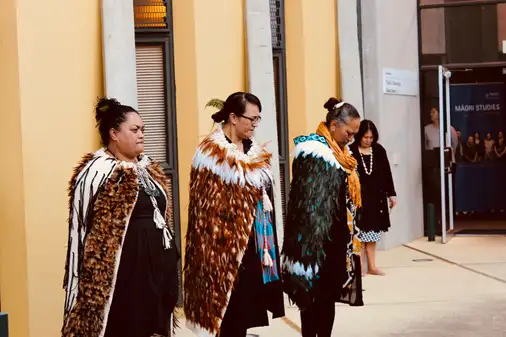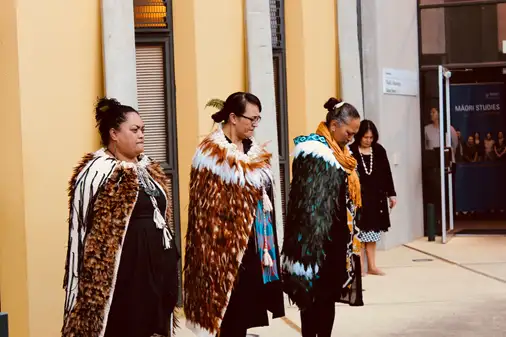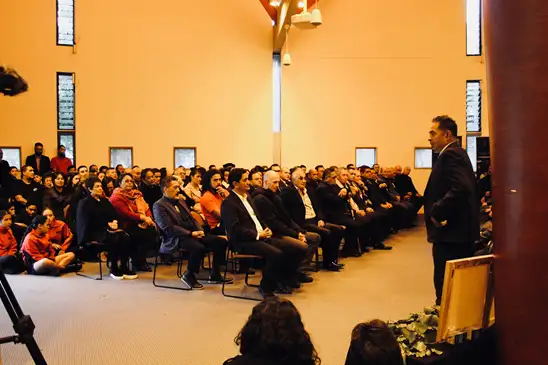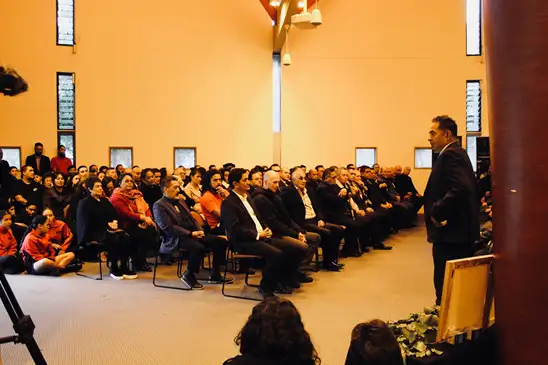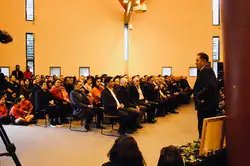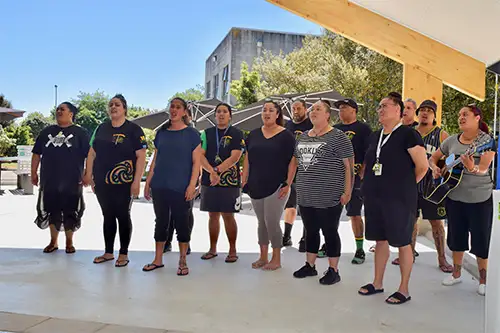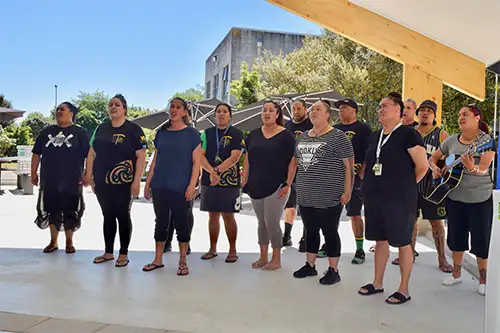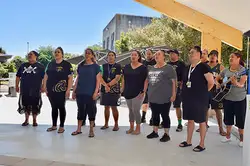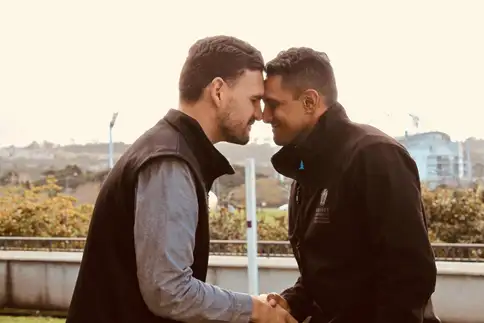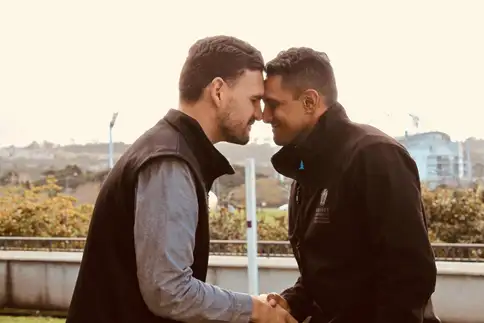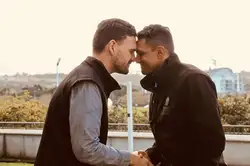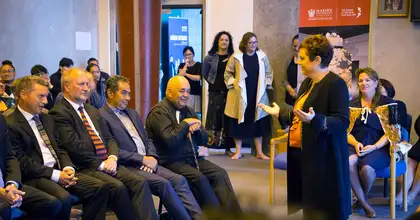
On this page
When you arrive to attend a pōwhiri you will gather with the other visitors outside the marae and wait to be called onto the marae by the tangata whenua (hosts). Women stand at the back of the group, with men at the front.
Karanga
The karanga (female call) is a unique form of female oratory in which women bring a range of imagery and cultural expression to the first calls of welcome and response. This is where the hosts and manuhiri (visitors) exchange key information, which could include where the visiting group is from and the reason for their visit.
The kaikaranga (woman performing the karanga) of the mana whenua (hosts) calls first. A kakarangi from the manuhiri may respond to her call. The karanga is often a series of acknowledgments which includes:
- a welcome to visitors
- acknowledgement of those who have passed away and in the spirit world
- acknowledgement of those living
- a concluding welcome.
Whaikōrero
Whaikōrero, or oratory speech, refers to the formal speeches or the exchange of greetings made by speakers from both sides. Speakers are usually male. The oratory upholds the mana (prestige/authority) of the side speaking. An expert in oratory will display his:
- knowledge of whakapapa (genealogy) and mythology
- mastery of language, rhetoric and dramatic presentation.
During whaikōrero, links between ancestors and those present at the pōwhiri are made, and genealogical links between the tangata whenua and manuhiri are emphasised. The kaupapa (purpose) of the occasion is also discussed, as may be the current issues and concerns.
Waiata
A waiata (song) is sung after each kaikōrero (speaker) has finished. It’s best to support them by walking to stand behind them if possible.
It’s common to hear traditional waiata during pōwhiri. The quality and intent of the waiata is critical, as it upholds the mana of that group and embellishes the exchanges made during the whaikōrero.
Te Aroha
Te Aroha is a simple waiata that’s appropriate to sing at all pōwhiri.
Lyrics:
Te aroha – love
Te whakapono – faith
Me te rangimarie – peace
Tātou tātou e – to all.
The university also has its own waiata, "Te Kunenga ki Pūrehuroa".
Learn about the university's waiata
Hongi
The hongi is our traditional greeting and is literally the sharing of breath. The tradition of the hongi recalls the Māori legend of the creation of the first earthly woman, Hineahuone. Tāne, the creator god, formed her from clay and then breathed life into her nostrils.
Our tips for hongi are:
- move slowly to avoid head butting
- remove hats and glasses if possible
- start by shaking hands
- don’t be alarmed if your partner comes in for a second press as a double press is the custom of some iwi
- know that kissing on the cheek is also appropriate. Many women kiss on the cheek rather than hongi.
Sharing kai
Sharing kai (food) at the end of the pōwhiri lifts the tapu (sacredness) of the event.
